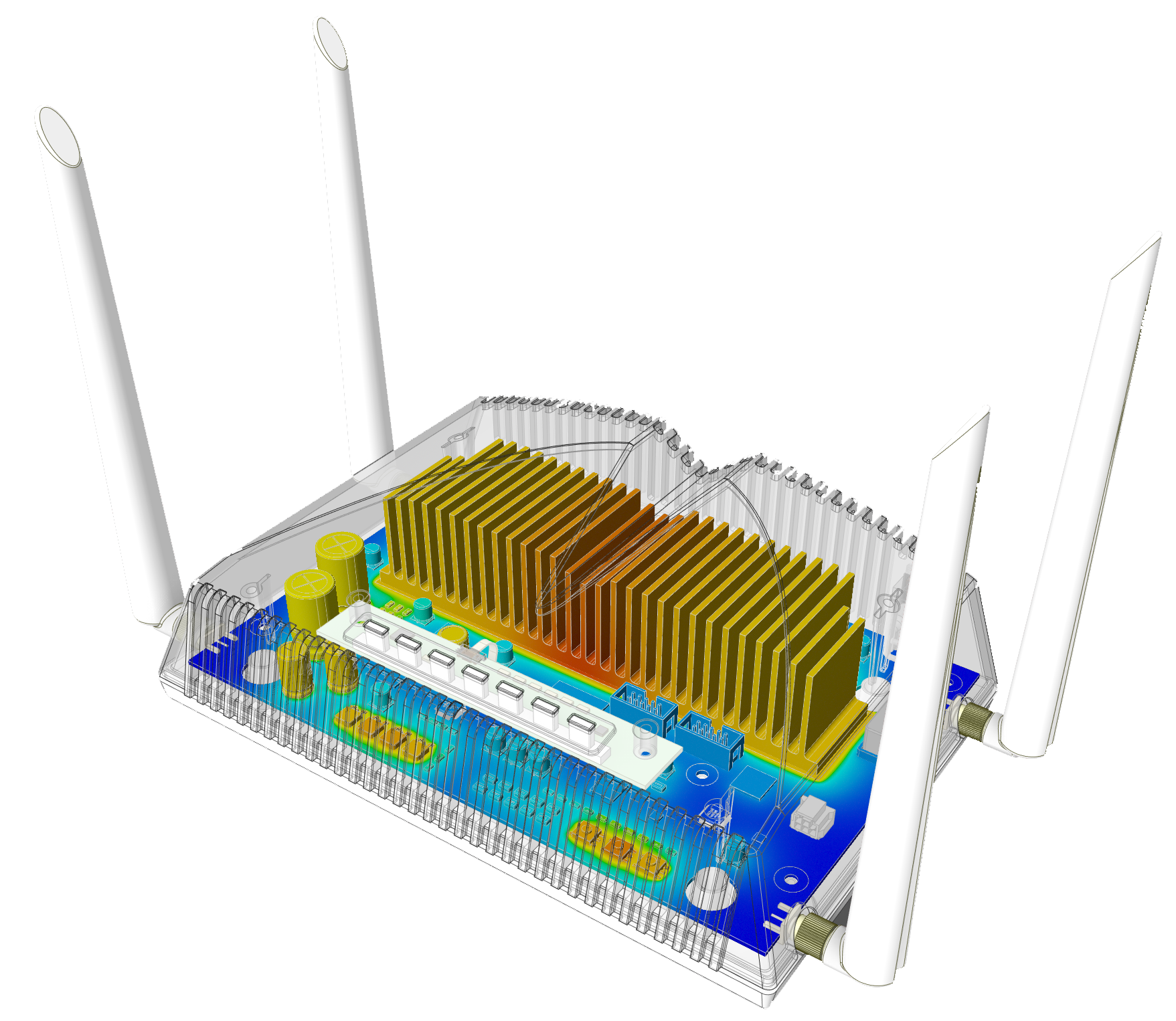The Econ Simulation Student Competition – held annually for the past three years – received 11 qualifying projects implemented in Moldex3D and Ansys software. Students from Hungary, Croatia, and Serbia participated, and the first 3 winners received a total prize of 300.000 HUF (~770 EUR), along with the opportunity to briefly present their projects at the 22nd Econ Conference.
The Econ Simulation Study Competition, now in its third year for the 2023/24 academic year, aims to introduce engineering simulation tools to students in higher education who are open to the challenges of engineering tasks, to help them solve them more efficiently and accurately. It aims to broaden and deepen their engineering and technical knowledge, thus increasing their potential in the labor market.
“We want to equip engineering students with the tools to help them excel in their field. We encourage them to use Ansys and Moldex3D simulation software to solve real-world engineering challenges, demonstrating their problem-solving skills and capitalizing on their ongoing studies.” – shared his thoughts Gábor Kiglics, CEO of Econ Engineering, on the competition.
Econ’s Simulation Student Competition provides a valuable platform for engineering students to showcase their talents and gain recognition in the industry.
Technical details of the Econ Simulation Student Competition
The project entered in the competition can be based on a semester assignment, a midterm project, a paper for the Scientific Students’ Conference, a Master’s thesis, or a Ph.D. dissertation. In solving the project task, students should use Ansys (general finite element, finite volume simulation) and/or Moldex3D injection molding simulation software. Technically, projects can focus on a single physical field or dive deeper into the analysis of several fields. They can also investigate interactions between physical phenomena such as mechanics, thermodynamics, fluid dynamics, or electromagnetism.
The Econ Simulation Student Competition’s detailed announcement is available here. The program is announced every autumn for university students in Hungary and the Adriatic region. The deadline for this year’s project was 20 February 2024, with a total of 11 entries.
Econ Simulation Study Competition 2024 results announcement at the 22nd Econ Conference
The submitted projects are judged by a jury of experts. Detailed documentation is required to ensure a fair and thorough evaluation. In the assessment, preference is given to projects implemented alone. Additionally, attention-grabbing ideas and curiosity in the use of simulation are valued more than the complexity of the geometry.
As in previous years, Econ Engineering’s annual professional simulation conference, the 22nd Econ Conference, hosted the awards ceremony. The top 3 winners of the competition and their consultants were also invited to the event, which is one of the biggest gatherings of Moldex3D and Ansys users in Hungary. In addition to the award ceremony, this year for the first time, the winners could make a brief, few-minute presentation on their projects to an audience of professionals.
1st place – Zoltán Hafner
Of the high-quality entries received, the first prize winner was Zoltán Hafner, a student at BME Faculty of Mechanical Engineering. His project entitled “Aerodynamic performance investigation of rocket air brakes” aims to investigate the effect of air brakes on the aerodynamic performance of sounding rockets. Air Brakes are a set of radially deployed plates that generate additional drag, thus decelerating the rocket. Consultant for the project: Dr. Balázs Farkas.
2nd place – Antal Gergely Kátai
Winner of the second prize was Antal Gergely Kátai for his work on “Impact of vortex rings“. The aim was to create a model that could reliably reproduce the formation, progression, and impact of vortex rings. In foreign research on similar topics, usually a DNA model is used, in this thesis he wanted to achieve a good result using a RANS model. Antal Gergely Kátai is a student of the Faculty of Mechanical Engineering at BME, his consultant was Dr. Balázs Istók.
3rd place – Dániel László Joó
Dániel László Joó took the third place thanks to his project “Track-bridge interaction for steel railway bridges“. The thesis aimed to investigate the damping potential of using ballast track for bridges. A large percentage of our train paths were built using this method, but the current Eurocode does not currently consider the potential positive effect of this. If the effect of attenuation is significant, a large percentage of our tracks could continue to be used intact. Dániel László Joó is a student at the Faculty of Civil Engineering at the BME. His consultants are Dr. Balázs Géza Kövesdi and Josef Fink.
All entries of the academic year 2023-24 are available on Econ’s website.
The entries from previous years are available here.
Econ Engineering is committed to the continuous development and improvement of the education system in Hungary, including higher education. To this end, our company has been persistent and motivated in cooperating with various higher education institutions in Hungary and the Adriatic region for many years.
You can read more about these activities and find our free software packages for students here: https://econengineering.com/hu/academy/support-of-engineering-education/
